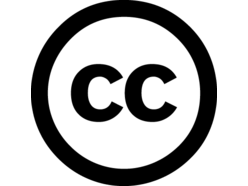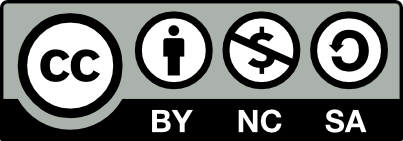Understanding Creative Commons in education
This article is also featured on Christchurch Connected Educators as part of the 31 days of blogging during Connected Educators Month…
In today’s world of increasing digital connectivity, sharing and connection, the proliferation of social media and cloud-based technologies, do you know who owns the work you create? How do you view issues that relate to ownership of your work and the work of others? Do you know what the issues are and how to manage them or, importantly, how your school could manage them?
As professional educators, we thrive and grow by sharing practice, knowledge and new approaches to learning. As sharing and collaborating increases, so does the need to understand the implications of sharing intellectual property and copyright. We need to think differently and ensure we strengthen the collaboration that happens across education. These are common issues we encounter as Ministry-accredited expert professional learning facilitators.
Views of knowledge and sharing
New views of what knowledge is is cited as a critical aspect in the New Zealand Curriculum; the fact that we have evolved from being a society where the collection of knowledge as the key indicator of ‘being educated’, towards one where knowledge creation is a much more social, collaborative and shared experience. It is fast becoming a requirement of a future-oriented education system that knowledge creation becomes a shared and collaborative endeavour. Open Education Resources (OER) is a wonderful movement which aims to provide open resources for all learners, not just those who can afford them.
The ease with which we can collaborate and share ideas in order to develop new approaches, resources and knowledge is certainly one of the strengths of our education system and I believe we should do everything we can to protect and enhance this. As Rosemary Hipkins, Rachel Bolstad, Sally Boyd and Sue McDowall state in their book ‘Key Competencies for the Future’, the sharing and ‘collision’ of different viewpoints has the potential to develop new approaches, new ideas, as well as new ways of being. Therefore we need to model this as adults when we create, curate and share content we come across on the internet.
Yet how does this apply to us as educators when, for example, we move from one setting to another? What happens to our work? How does this apply when the approaches we come up with – many of which may be collaboratively created – are quite often shared amongst a number of colleagues and sometimes across a number of schools/settings? Who owns what?
Who owns my work?
It came as a bit of a surprise to me when I learned that the work I have created while in the employ of various schools does not belong to me – it is owned by the Board of Trustees under which I was employed at the time it was created. In many ways this might seem contrary to what we naturally do as educators that is, to share our work for the betterment of other educators and thus the learners we work with.
Consider some of these scenarios:
- Have you ever stood at the photocopier while copying resources for your day and looked at the copyright notice on the wall… then chosen not to follow it (probably because you were busy or rushed)? Could there be implications of this?
- The teacher who creates a resource that is then sold a few years later to a company who makes a lot of money out of this resource – who should receive the royalties?
- The teacher or principal who creates an online tool or app which is then becoming a successful commercial endeavour – who should be compensated for what?
- An idea for a new approach to learning which is shared (by a staff member) to a consultant who re-uses this in the process of being paid for his or her work – is that staff member and/or consultant infringing the law?
- The consultant who creates a shared document to gather different approaches from others while in the employ of another employer – ie. those contributing to the document are employed by other schools – is this consultant (and those educators who contributed to the document if their school doesn’t have a CC license) breaking the law in doing this?
…the list goes on…
What does the law say?
Legally in New Zealand, and in many other countries, the Copyright Act states that first ownership rights reside with the employer unless otherwise specified in an employment contract or written agreement (such as a Board of Trustees policy). This has big implications for educators and Boards of Trustees the more and more we openly share, remix and mash-up our ideas, resources, approaches, and creations.
Given the evolving (or perhaps exploding) nature of the internet and the need for humans to share and connect, we have luckily developed a system which overcomes many of these problems – The Creative Commons.
Creative Commons provides a range of licenses which enable copyright holders (i.e. in our case the Board of Trustees) to allow reuse of works created in the course of their employ by giving everyone a range of permissions in advance. This creates a transparent and open process which enhances sharing and collaboration if it is well thought-through.
Understanding and applying Creative Commons is in our view a key piece of knowledge for educators if they wish to be effective digital citizens.

What Creative Commons licences do is allow employers and individuals to choose the kinds of permissions they wish grant over their work. People who use these licences are contributing to a global pool of reusable works and are helping to create a culture of sharing, reuse and innovation.
What should you do?
The best way to ensure that everyone (you and your employer) is protected is to ensure your principal and board are aware of these issues and encourage them to develop a policy on copyright which incorporates Creative Commons licensing. There are four different elements contained within Creative Commons licenses which can come together in various ways to create six different types of licence.
You should also consider some professional learning for staff and create a case for the Board with supporting resources.
Check out the schools area of Creative Commons New Zealand site. On this site there are a number of excellent examples of schools that have created their own Creative Commons policies, including Wellington High, Warrington School, Taupaki School and Albany Senior High School. These examples show how the school uses the licensing and the difference this makes.
A special event for all educators
Christchurch Connected Educators are hosting a special event for anyone interested in this important issue. The Creative Commons evening will be held on Thursday 23rd October, 7.30pm at Fendalton School. We are extremely fortunate to have Matt McGregor, the Creative Commons Public Lead for New Zealand as our guest speaker.
I would strongly encourage you to come to this evening and learn more about Creative Commons licensing and how it might impact on you and your school.
For more information and to register please go here…
We hope to see you there!
The six different licenses

ATTRIBUTION
creativecommons.org/licenses/by/3.0/nz
This licence lets others distribute, remix, tweak, and build upon your work, even commercially, as long as they credit you for the original creation.

ATTRIBUTION-NONCOMMERCIAL
creativecommons.org/licenses/by-nc/3.0/nz
This licence lets others remix, tweak, and build upon your work non-commercially with credit to you (their new works must also be non-commercial).

ATTRIBUTION-SHAREALIKE
creativecommons.org/licenses/by-sa/3.0/nz
This licence lets others remix, tweak, and build upon your work even for commercial purposes, as long as they credit you and license their new creations under the identical terms.

ATTRIBUTION-NONCOMMERCIAL-SHAREALIKE
creativecommons.org/licenses/by-nc-sa/3.0/nz
This licence lets others remix, tweak, and build upon your work non-commercially, as long as they credit you and license their new creations under the identical terms.

ATTRIBUTION-NO DERIVATIVES
creativecommons.org/licenses/by-nd/3.0/nz
This licence allows for redistribution, commercial and non-commercial, as long as it is passed along unchanged and in whole, with credit to you.

ATTRIBUTION-NONCOMMERCIAL-NO DERIVATIVES
creativecommons.org/licenses/by-nc-nd/3.0/nz/
This licence is the most restrictive of our six main licences, only allowing others to download your works and share them with others as long as they credit you, but they can’t change them in any way or use them commercially.
References
Basics of CC. (n.d.). Retrieved October 18, 2014, from http://cctoolkits.com/toolkits/basics-of-cc/
Copyright Act 1994. (n.d.). Retrieved October 18, 2014, from http://www.legislation.govt.nz/act/public/1994/0143/latest/DLM345634.html
Creative Commons Kiwi. (n.d.). Retrieved October 18, 2014, from https://vimeo.com/25684782
Creative Commons in Schools. (n.d.). Retrieved October 18, 2014, from http://creativecommons.org.nz/ccinschools/
Creative Commons Explained. (n.d.). Retrieved October 19, 2014, from http://creativecommons.org.nz/licences/licences-explained/
Hipkins, R., Bolstad, R., Boyd, S., & McDowall, S. (2014). Key competencies for the future. Wellington, New Zealand: New Zealand Council for Educational Research.
Excerpt From: Rosemary Hipkins, Rachel Bolstad, Sally Boyd, and Sue McDowall. “Key Competencies for the Future.” iBooks.
OER Commons. (n.d.) Retrieved October 20, 2014, from https://www.oercommons.org/
Open Educational Resources. (n.d.). Retrieved October 20, 2014, from http://en.wikipedia.org/wiki/Open_educational_resources
Overview of copyright issues. (n.d.). Retrieved October 18, 2014, from http://www.tki.org.nz/Copyright-in-Schools/Guidelines-for-schools/For-teachers-and-contractors/Overview-of-copyright-issues

Facebook Comments